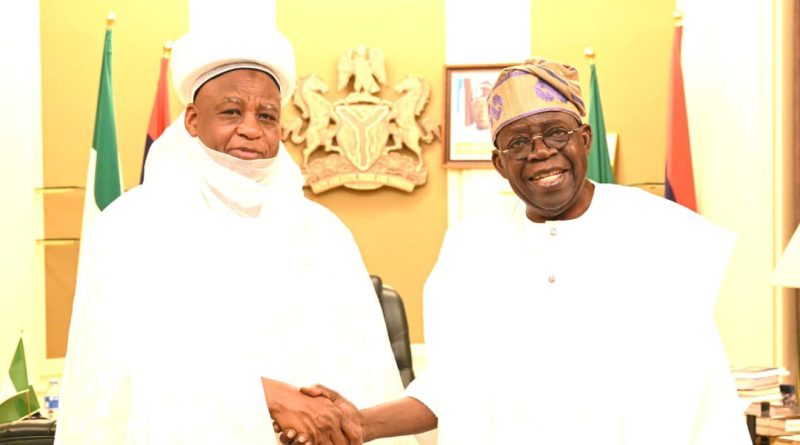Tinubu holds closed-door meeting with Sultan of Sokoto
President Bola Ahmed Tinubu on Friday held a closed-door meeting with Muhammad Sa’ad Abubakar III the sultan of Sokoto, at the State House, Abuja, in a move the Presidency says is aimed at deepening dialogue with key religious and traditional leaders to strengthen peace and social trust across the country.
The meeting followed a similar engagement earlier in the week with Ignatius Ayau Kaigama Bishop of the Catholic Archbishop of Abuja, signalling heightened consultations by the President with moral and cultural institutions at a time of growing global scrutiny over Nigeria’s handling of religious harmony.
According to the President’s Special Assistant on Social Media, Dada Olusegun, who posted videos of Tinubu’s interactions with both spiritual leaders on X, the engagements form part of an ongoing national conversation with influential figures who shape interfaith relations and grassroots stability.
Read also: Russia raises concern over Trump’s threat of military action in Nigeria
Presidency officials, who also confirmed the meetings to The Nation, said the discussions are at the heart of Tinubu’s Renewed Hope Agenda, which places inclusivity, unity, and interreligious cooperation as critical pillars for consolidating national cohesion and preventing the escalation of sectarian tensions. They noted that traditional and religious leaders remain essential partners in peacebuilding, conflict resolution, and addressing emerging socio-political challenges.
The consultations come shortly after the United States redesignated Nigeria as a “Country of Particular Concern (CPC)” over alleged severe violations of religious freedoms. The designation, announced by US President Donald Trump on October 31, 2025, has stirred diplomatic debate and triggered reactions from global observers.
Read also:Trump’s invasion threat ignites renewed push to tackle insecurity
In its rationale for the CPC status, Washington cited claims of widespread attacks by extremist groups such as Boko Haram, ISWAP, and armed Fulani militants, reporting that over 7,000 Christians were killed in the first seven months of 2025. The US further alleged a weakening of protections for minority worship communities in parts of the country.
Nigeria’s Federal Government has strongly rejected the allegations, insisting they are based on “false narratives” and misinterpretations of security realities. Officials argue that the Nigerian constitution fully guarantees religious freedom and that the country has long served as a model of interfaith coexistence in Africa. They also stress that victims of terrorism in Nigeria cut across all faiths and ethnic groups.
Analysts say Tinubu’s series of meetings reflect both a domestic and international strategy reinforcing local peace structures while reassuring global partners that Nigeria remains committed to protecting the rights of all religious communities.
The Sultan of Sokoto and Bishop Kaigama are among the nation’s most respected advocates for unity and dialogue, and their engagement with the Presidency is expected to produce renewed frameworks for collaboration on peace initiatives, especially in communities vulnerable to extremist threats.

